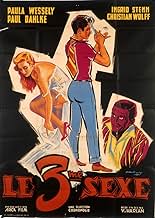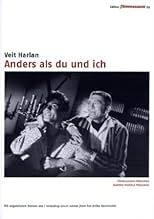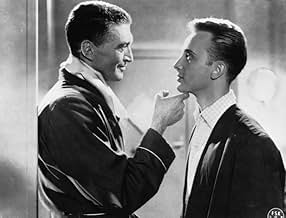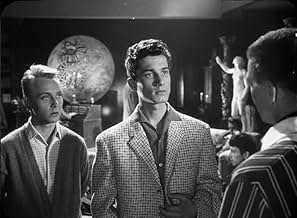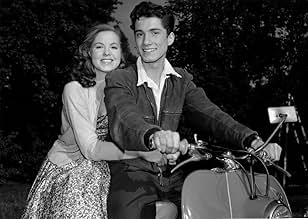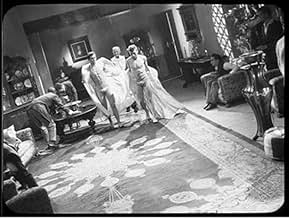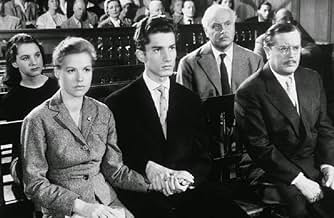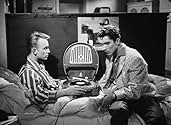Adicionar um enredo no seu idiomaKlaus is a young man in post-war Berlin. He is drawn to his friend Manfred and, under the encouragement of their acquaintance, Dr. Winkler, explore the underground world of gay clubs and ele... Ler tudoKlaus is a young man in post-war Berlin. He is drawn to his friend Manfred and, under the encouragement of their acquaintance, Dr. Winkler, explore the underground world of gay clubs and electronic music. His family begins to learn of his other life and do everything they can to ... Ler tudoKlaus is a young man in post-war Berlin. He is drawn to his friend Manfred and, under the encouragement of their acquaintance, Dr. Winkler, explore the underground world of gay clubs and electronic music. His family begins to learn of his other life and do everything they can to set him straight.
- Manfred Glatz
- (as Günther Theil)
- Travestiekünstler
- (as Marcel Andrée)
- Butler Maurice
- (não creditado)
- Petra Mertens
- (não creditado)
- Direção
- Roteiristas
- Elenco e equipe completos
- Produção, bilheteria e muito mais no IMDbPro
Enredo
Você sabia?
- CuriosidadesVeit Harlan sought to cleanse his reputation after making a well known anti-semitic propaganda film - O Judeu Suss (1940) and by creating this film, he became a crucial figure in the revival of the production of LGBT+ themed films in Germany after the war.
- Versões alternativasGerman edit is heavily censored; US cut, although shortened, more like the original, director's cut.
Fortunately the Filmmuseum München (Munich Film Museum) has undertaken the effort to find footage from the original version of the movie, called "Das dritte Geschlecht" ("The 3rd Sex"), and has just released a DVD of "Anders als du und ich" (European PAL, region code 0, German soundtrack with optional English subtitles) which provides the movie not only in stunning technical quality but also with extensive extra features including comparisons of all edited scenes with their original version. And these original scenes are far from homophobic! To give you just one example, in the edited version the lyricist's mother tells the painter's uncle (who joins the father in searching for his son) that she knows her son is gay and that she has learned to accept it, and the man replies that she mustn't accept it. In the original version he simply replies: Well, that's fate. A multitude of more examples prove without doubt that the original intention of the film was remarkably enlightened, and the superb and highly recommended DVD edition even contains a ROM part with documents that explain why the alterations were performed: The "Freiwillige Selbstkontrolle", a German film rating organization comparable to the MPAA, rejected the original version - for "advertising" homosexuality!
To get that straight (sorry for the pun): All this doesn't make Mr Harlan a saint. There are elements in the film that are hard to explain: Why is the art dealer filmed in a sort of demonic light during his all-male soirées? Maybe to parody the society's view on homosexuality? If so this would be a risky approach.
In the end we cannot accuse Mr Harlan of homophobia but certainly of naiveté: He, who always claimed that Goebbels (Hitler's "secretary of propaganda") had not only forced him to shoot "Jud Süß" but also destroyed his own non-antisemitic cut of the film (there are at least clues to support his version of the story) should have been warned that something similar could happen again and that this in conjunction with his reputation would destroy any noble message he may have wanted to communicate.
All in all a highly interesting and truly unique historical document of the situation of homosexuals in Germany very far "before Stonewall".
- samolak
- 15 de dez. de 2006
- Link permanente
Principais escolhas
Detalhes
- Tempo de duração1 hora 31 minutos
- Cor
- Proporção
- 1.37 : 1
Contribua para esta página


